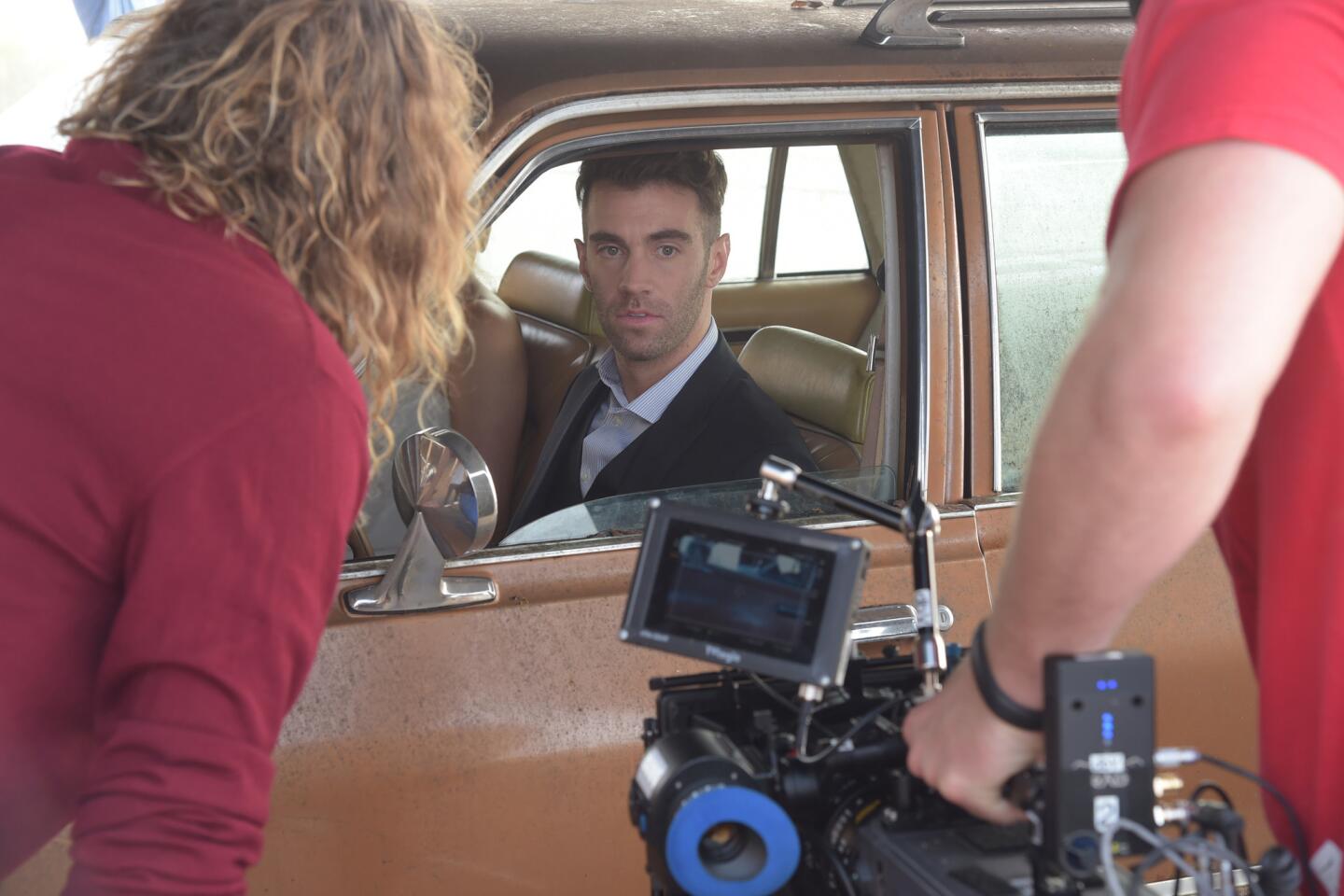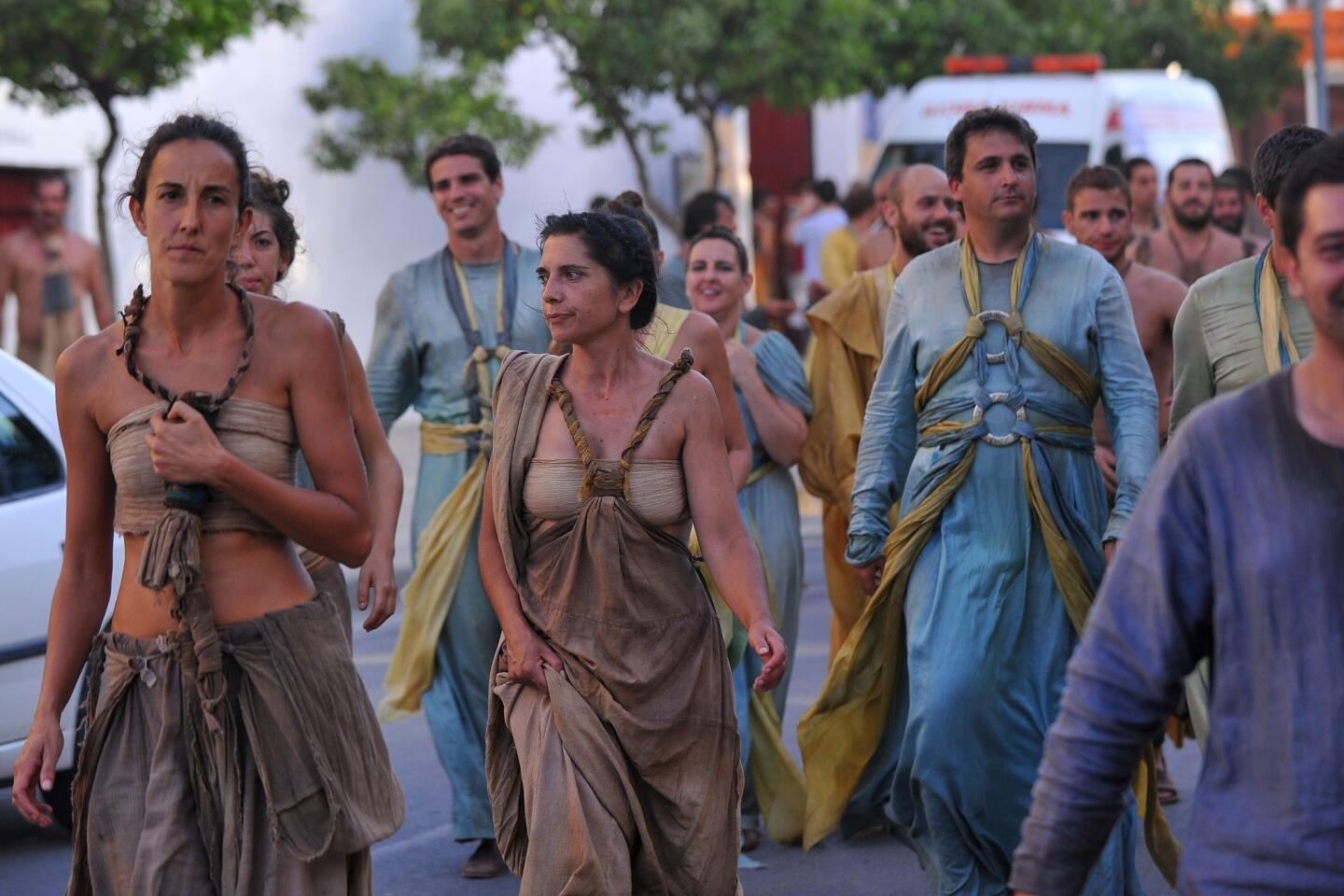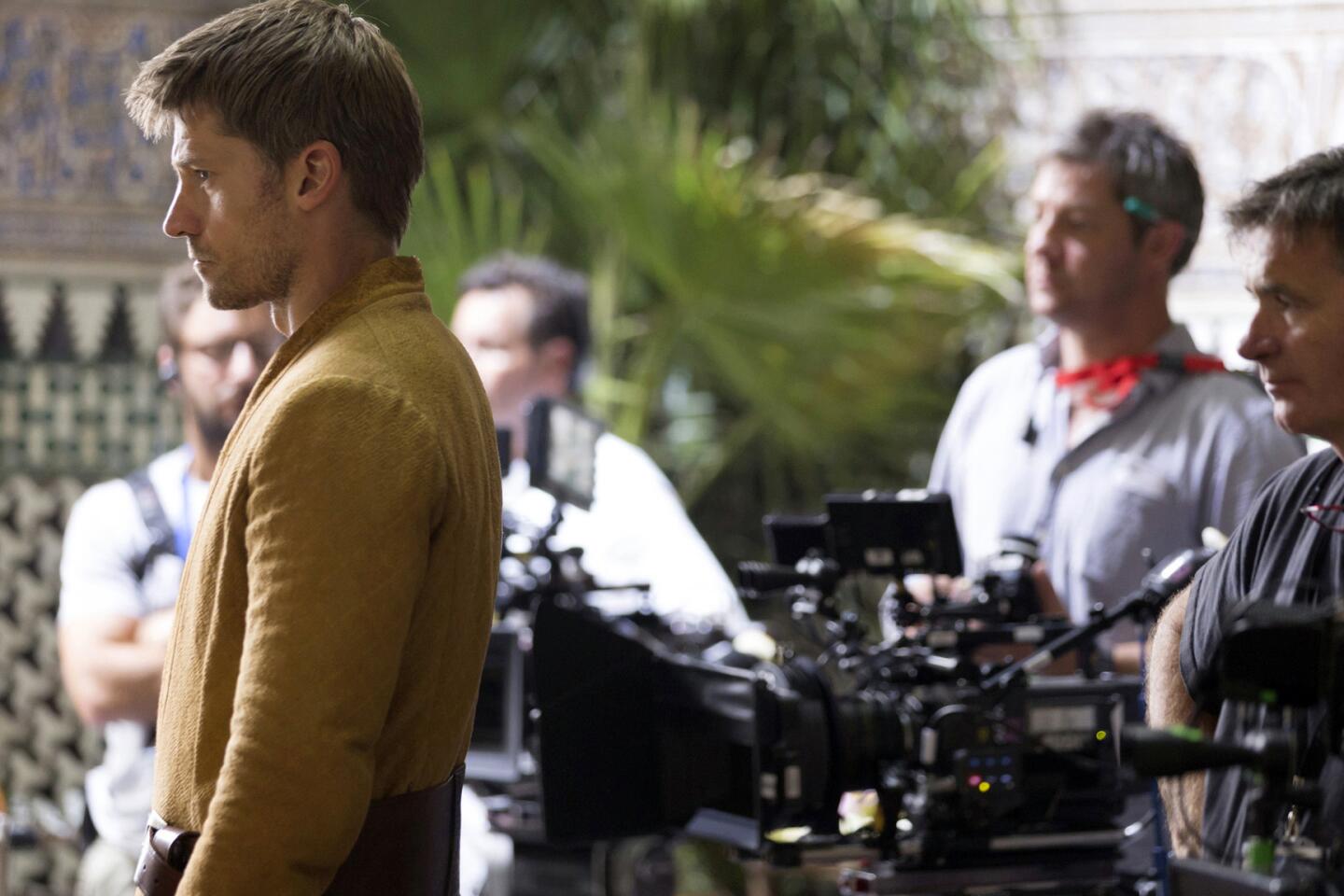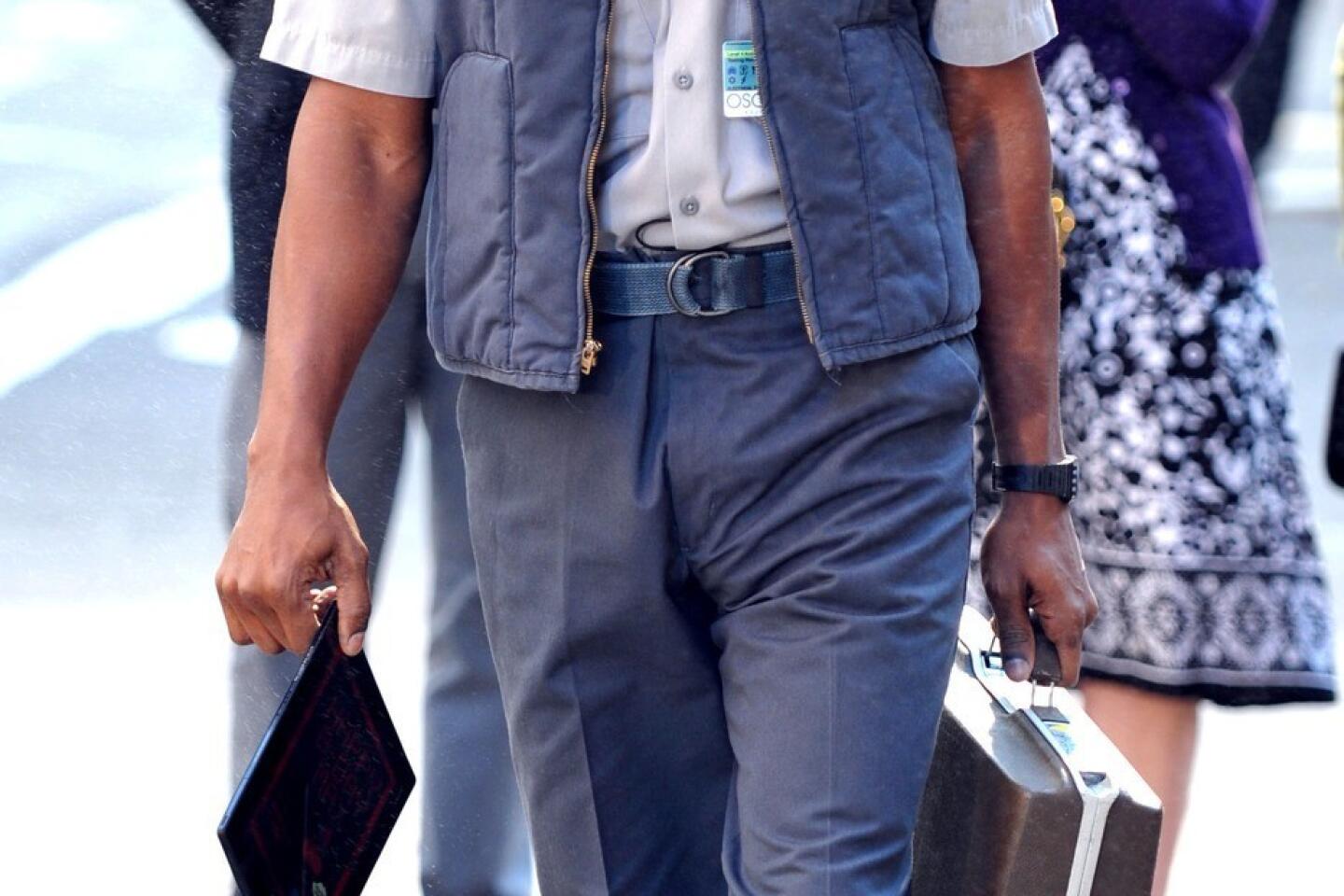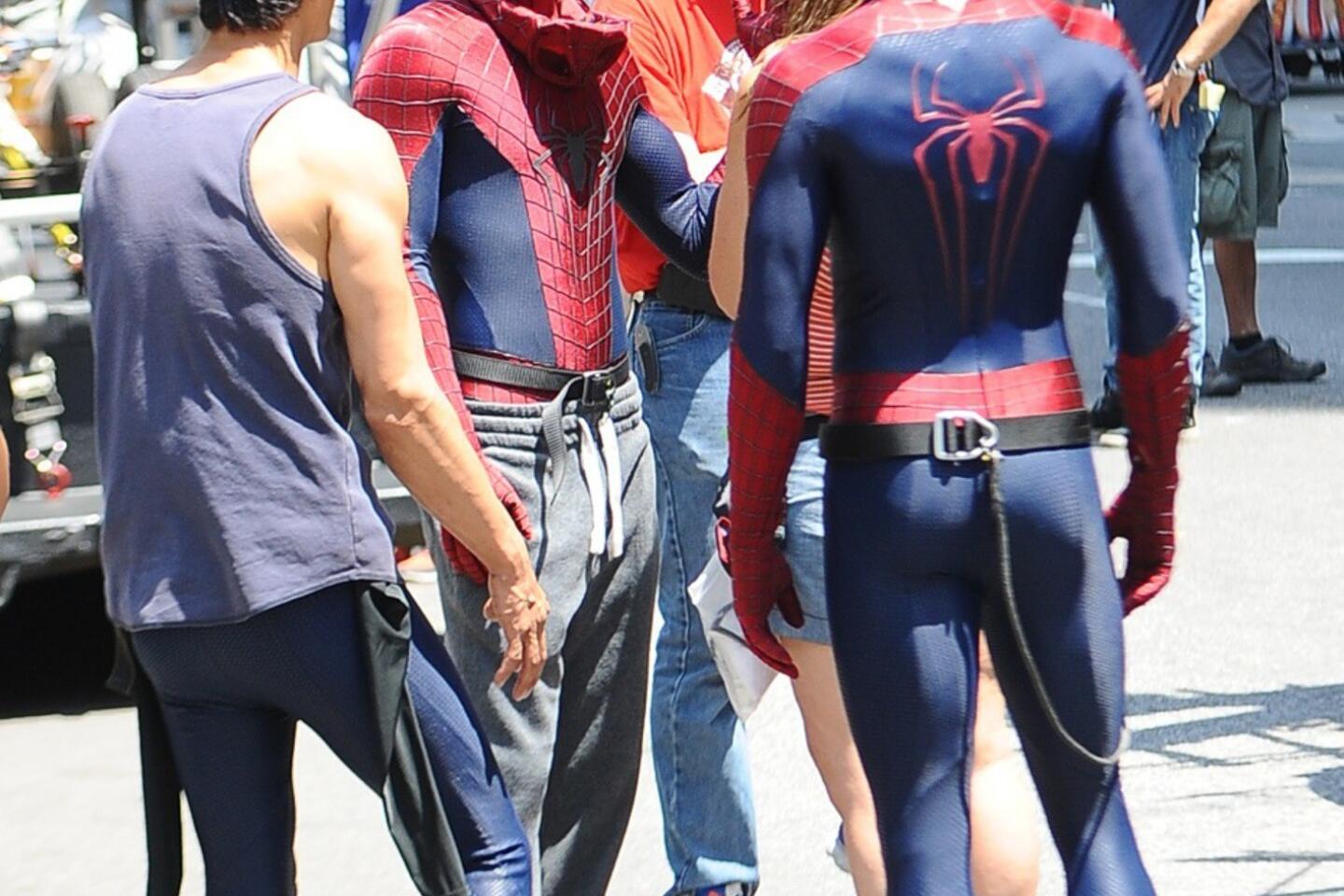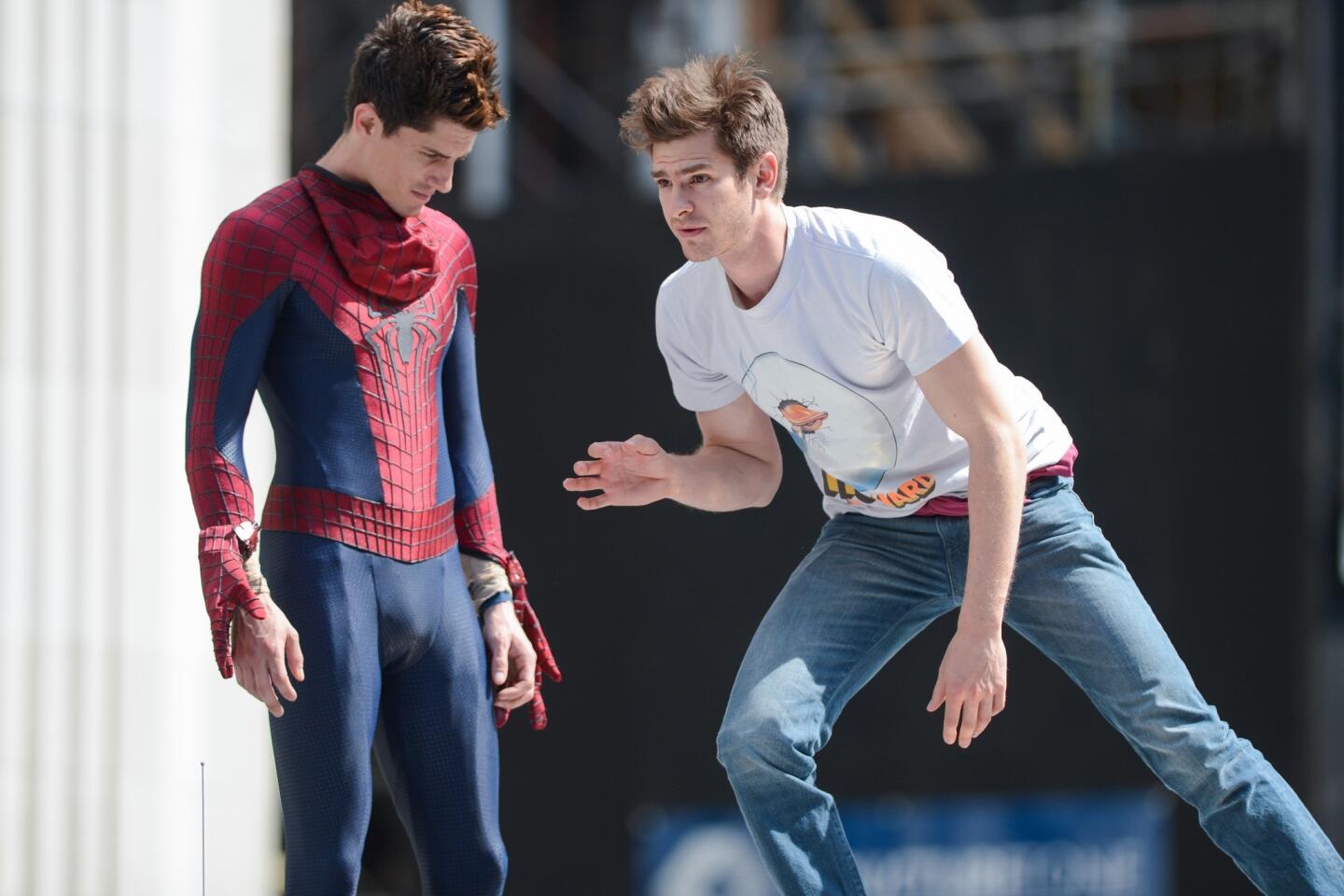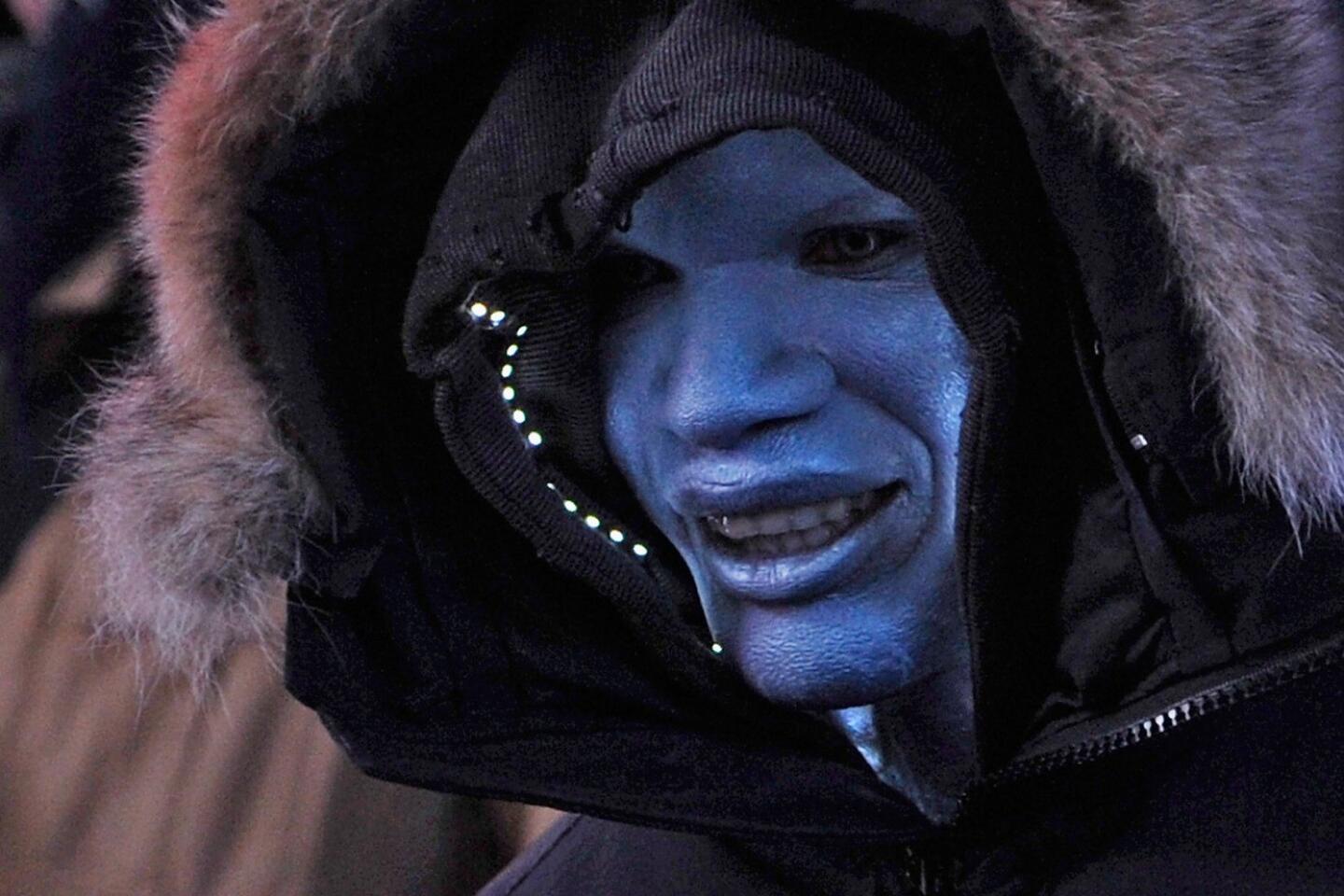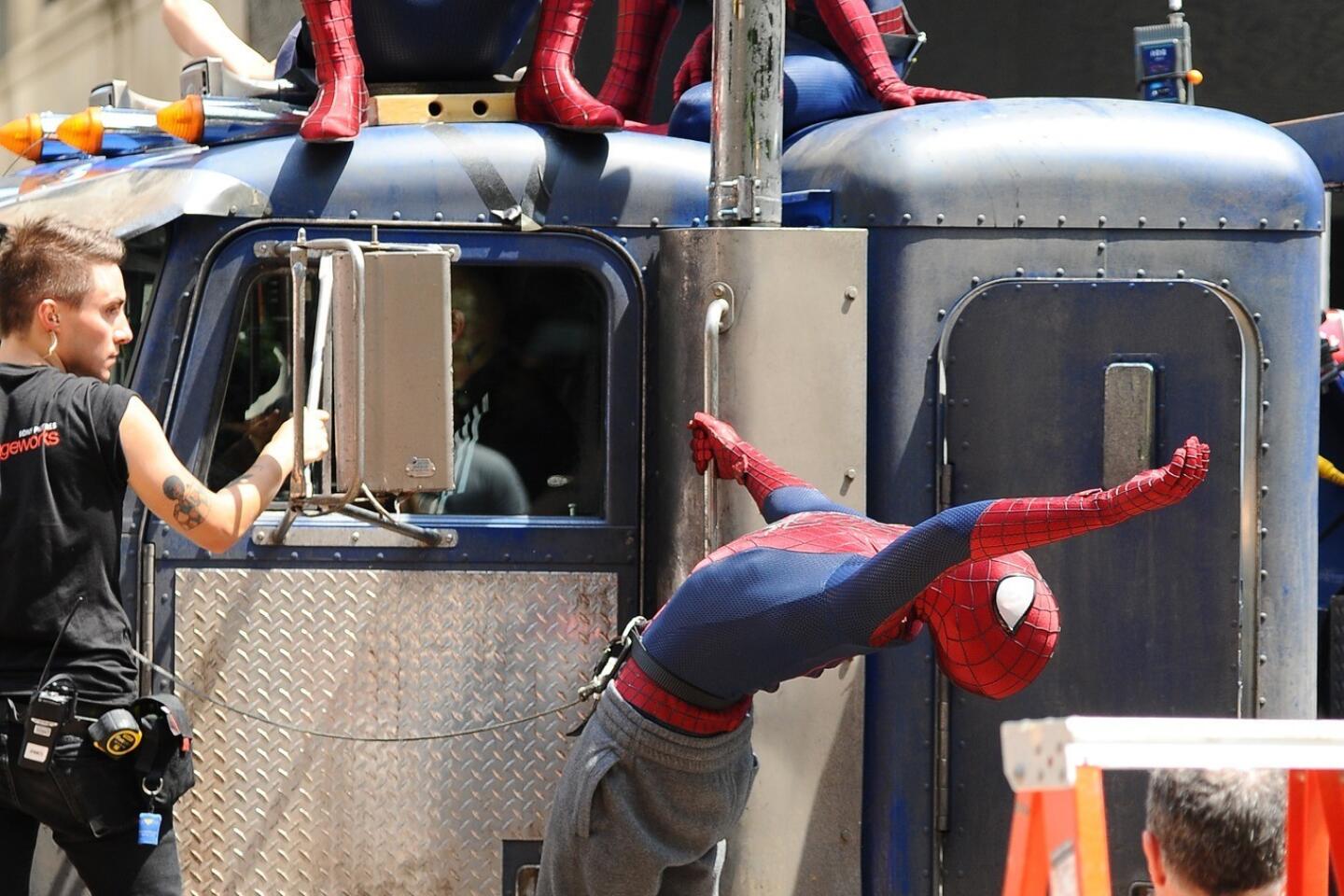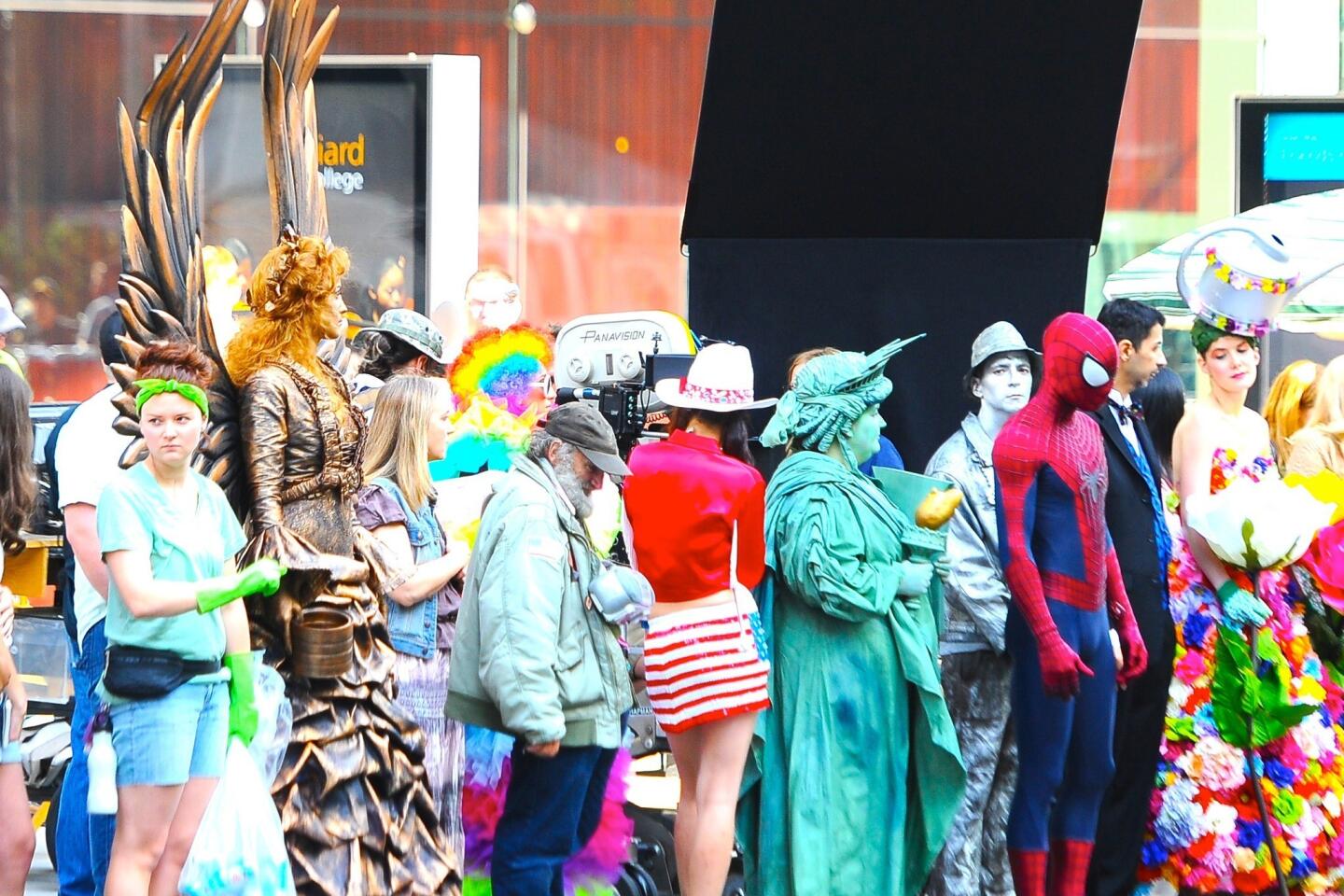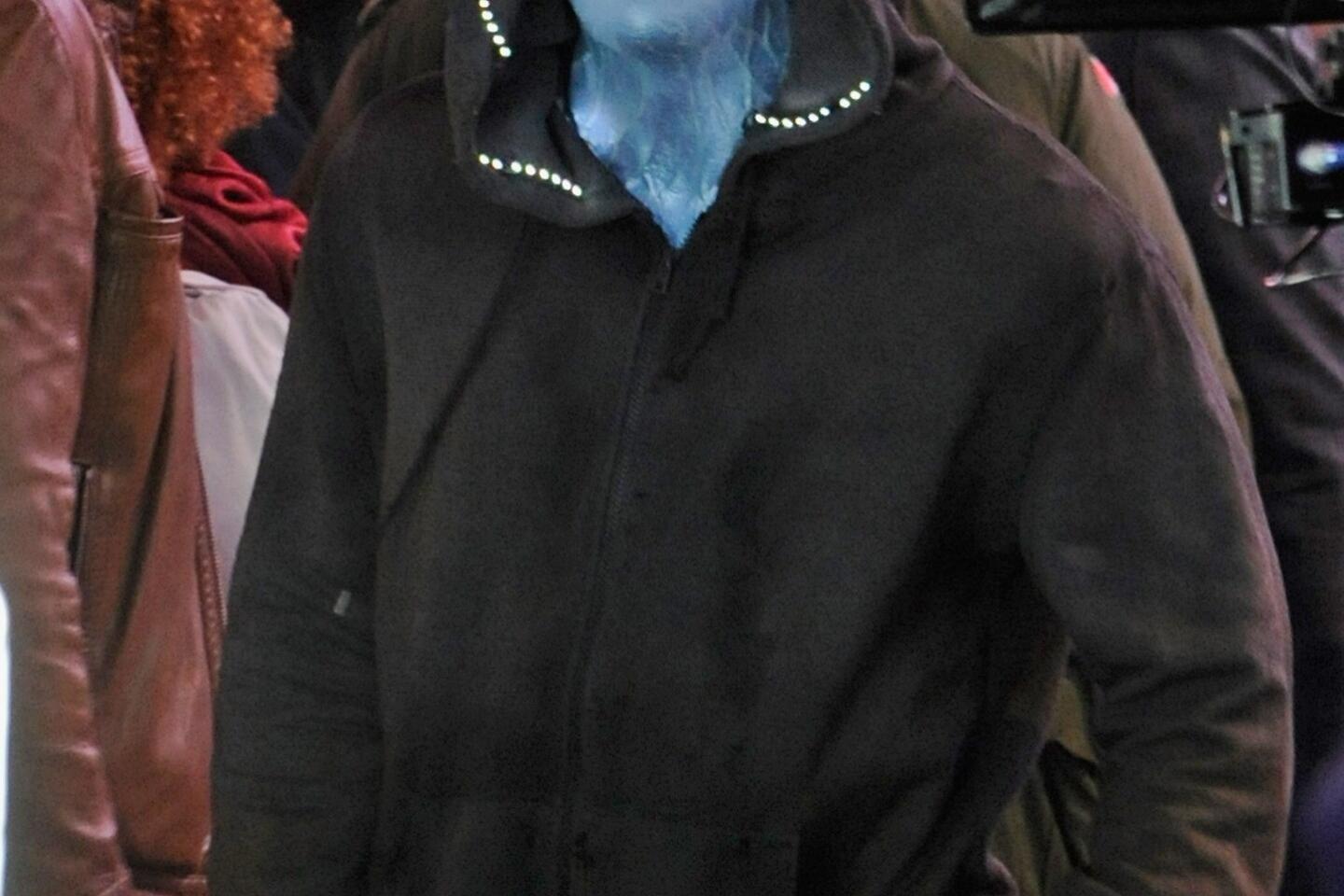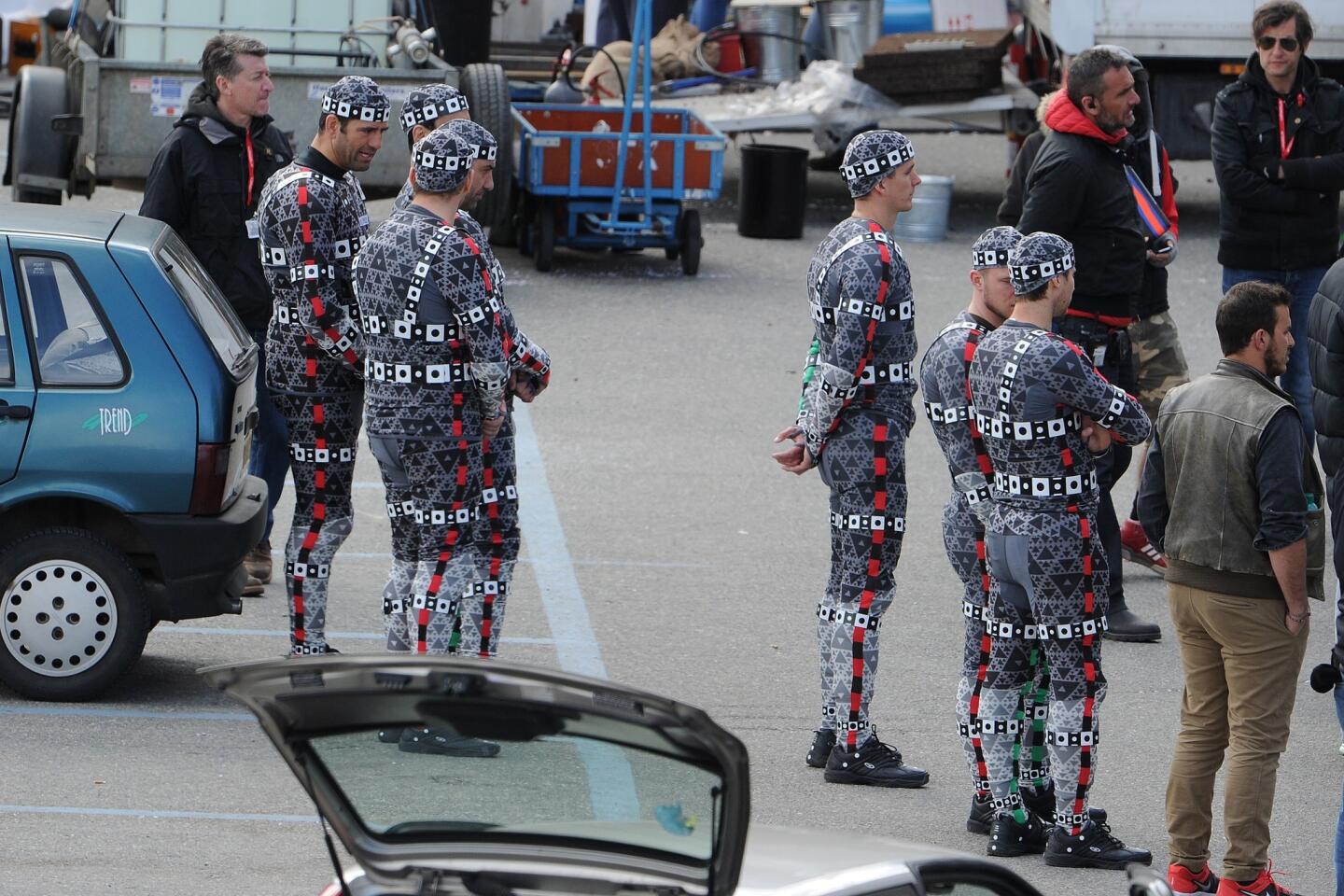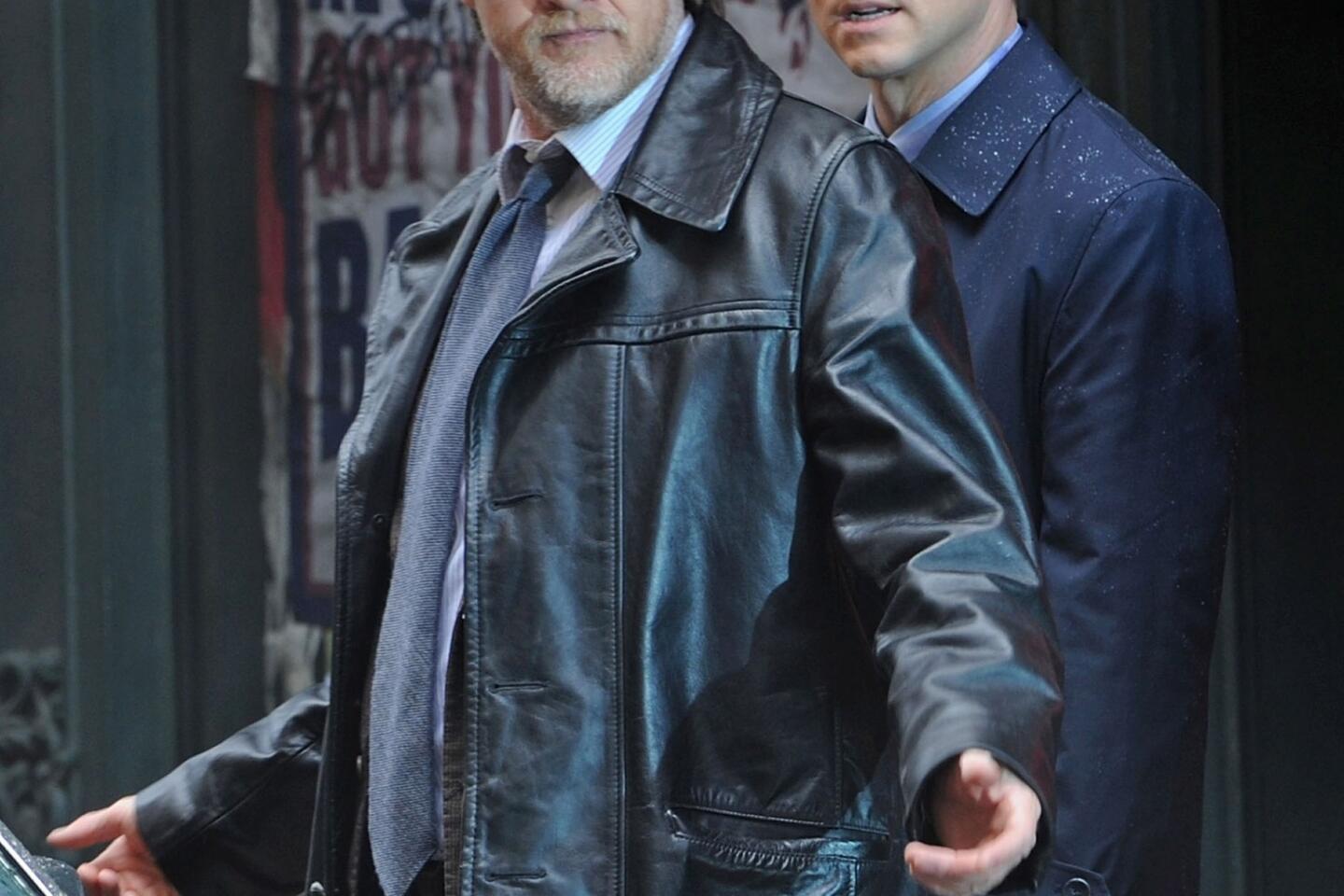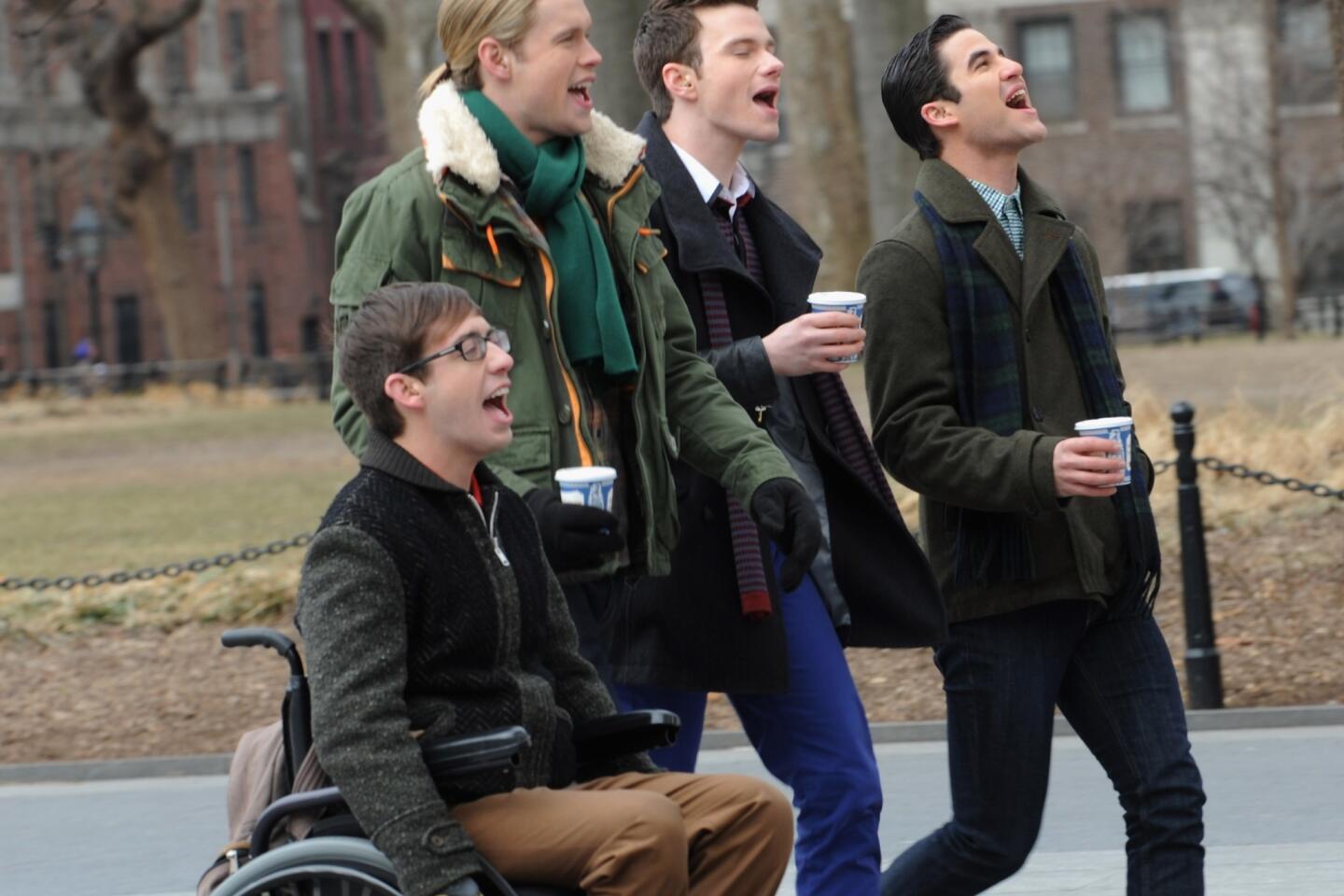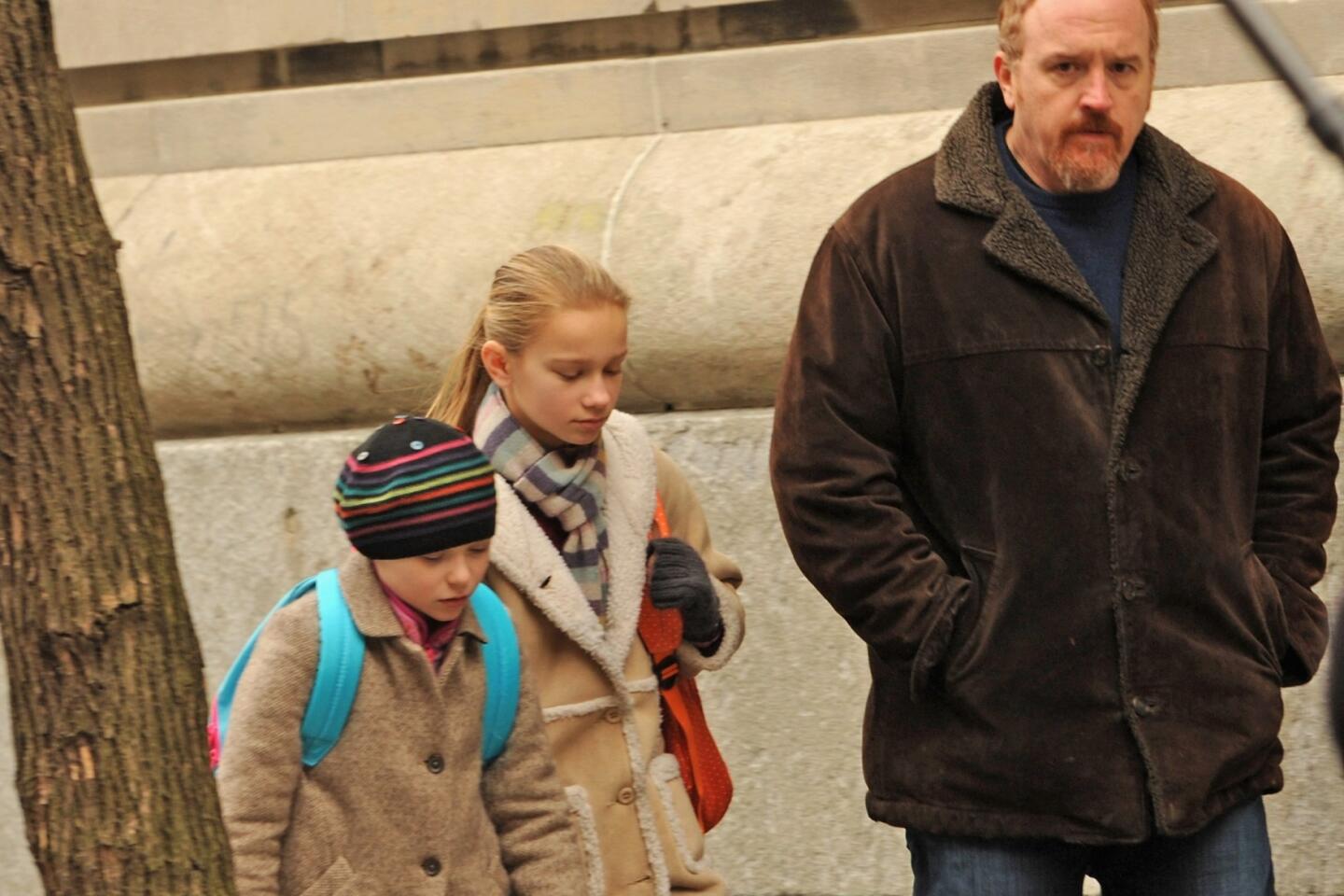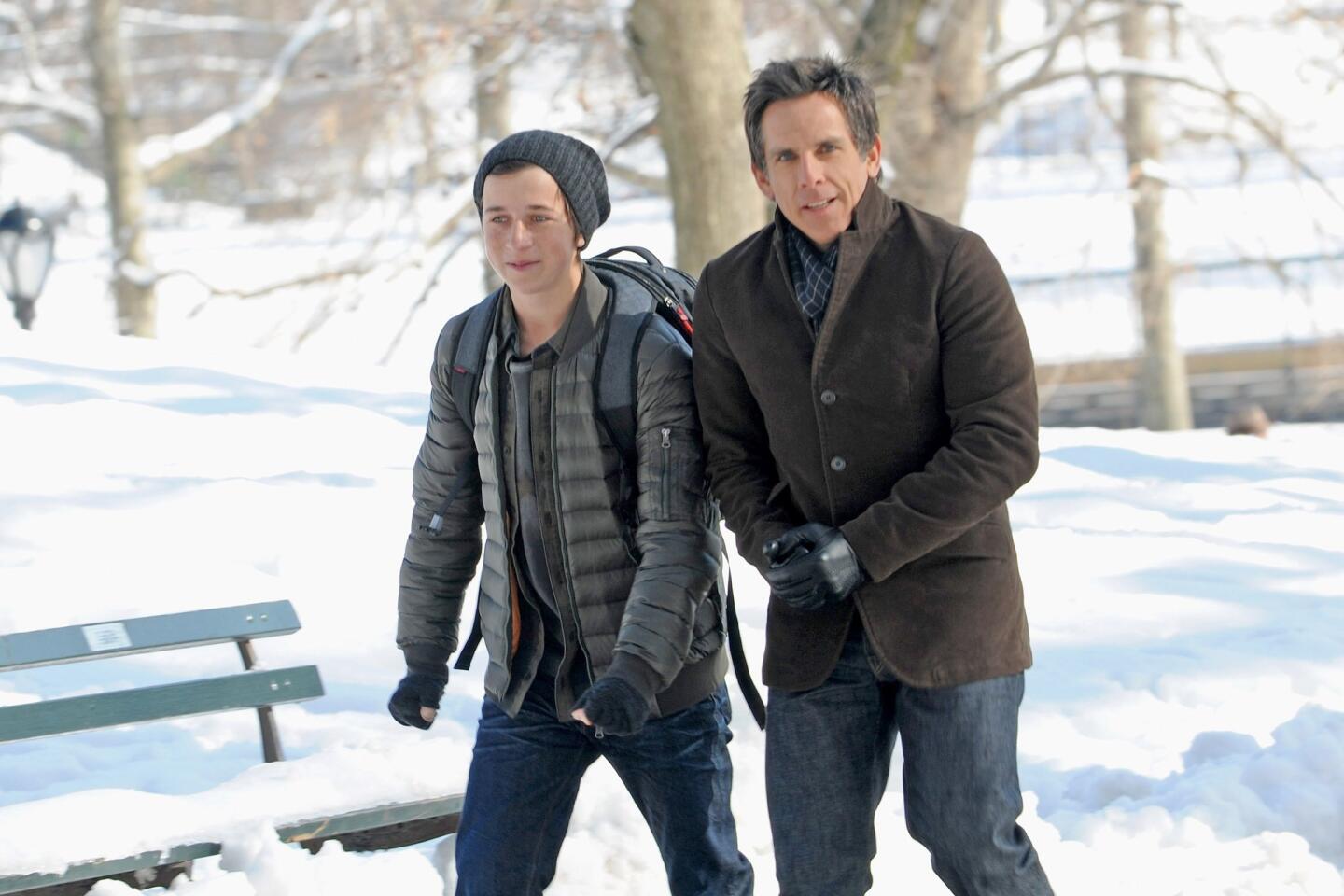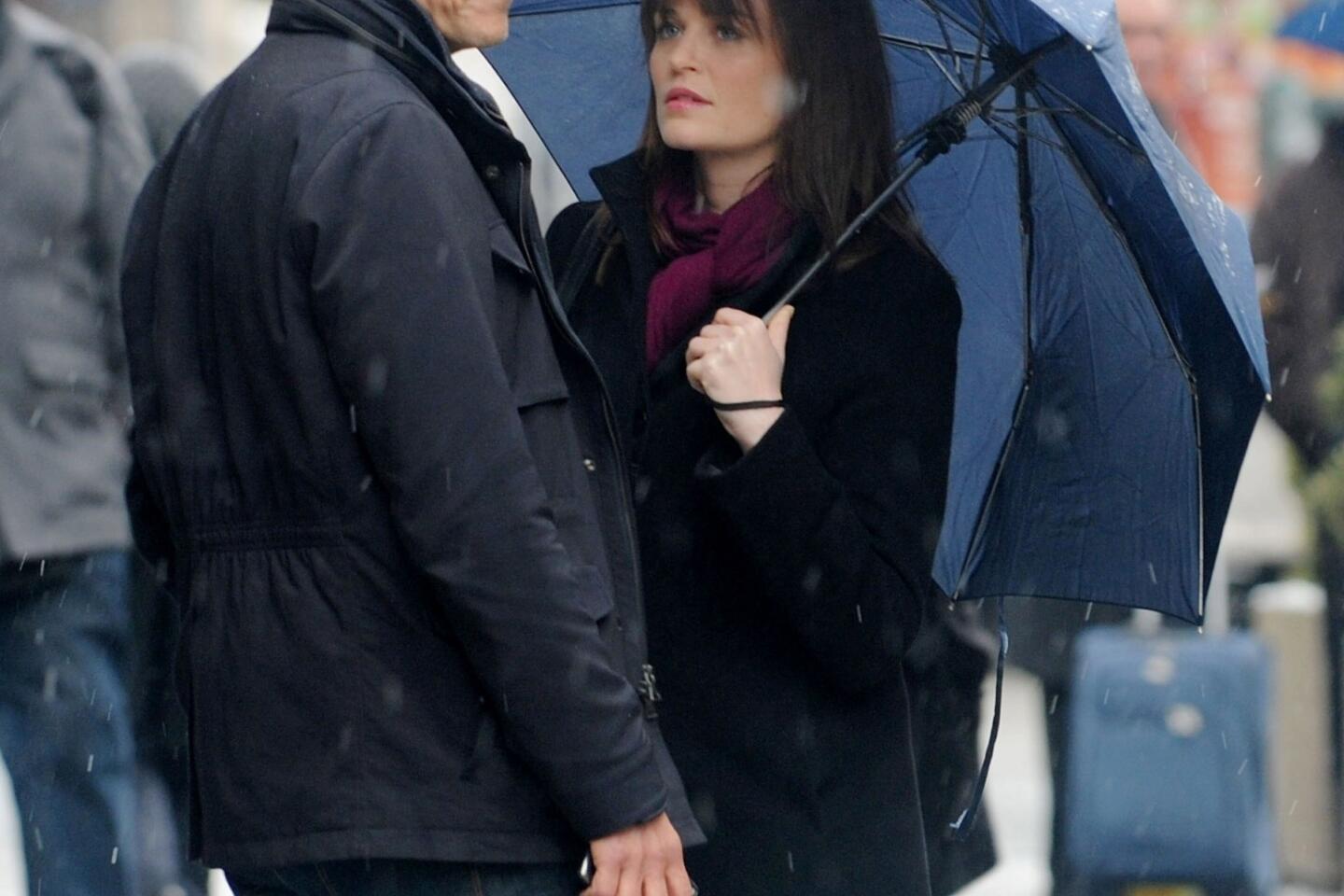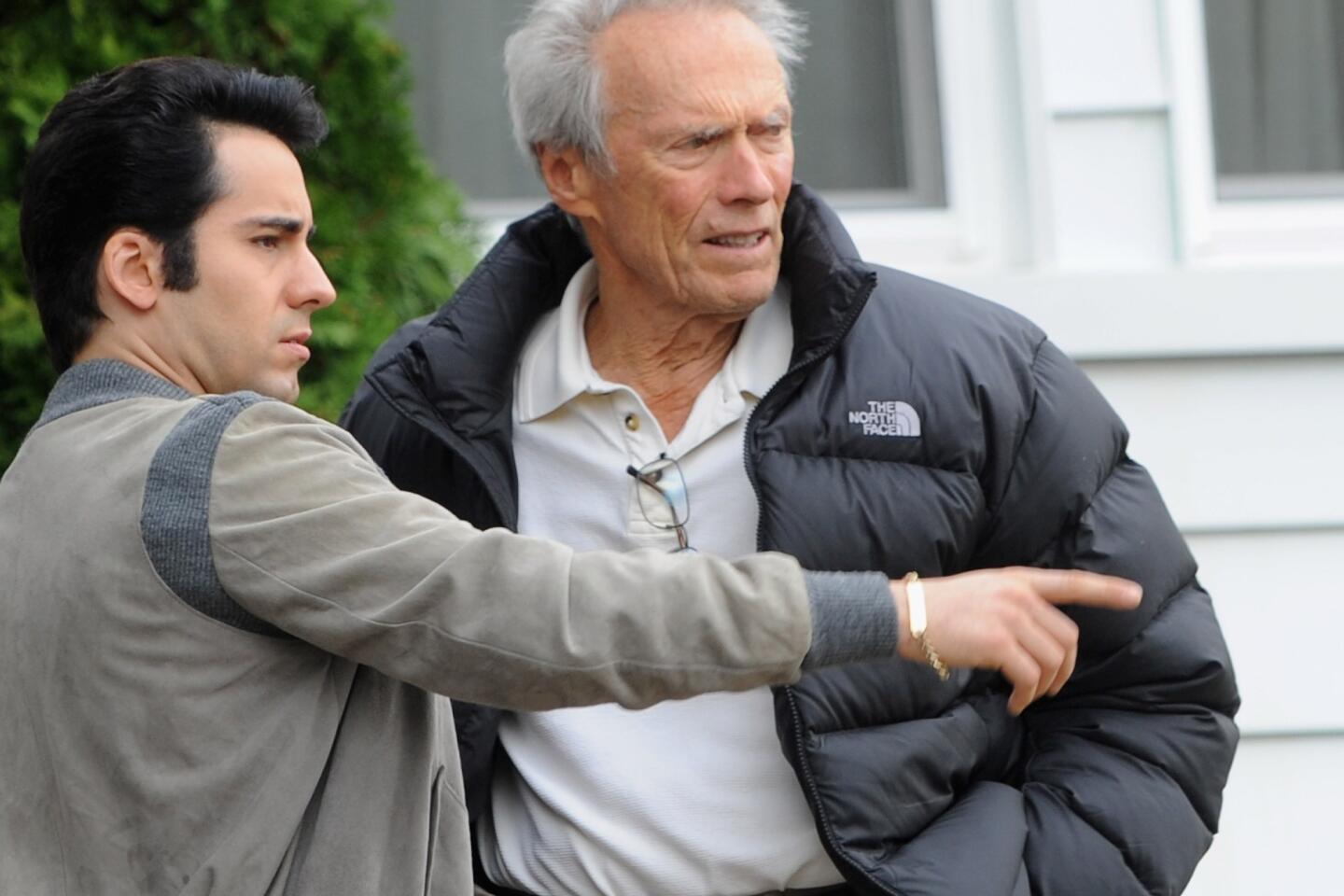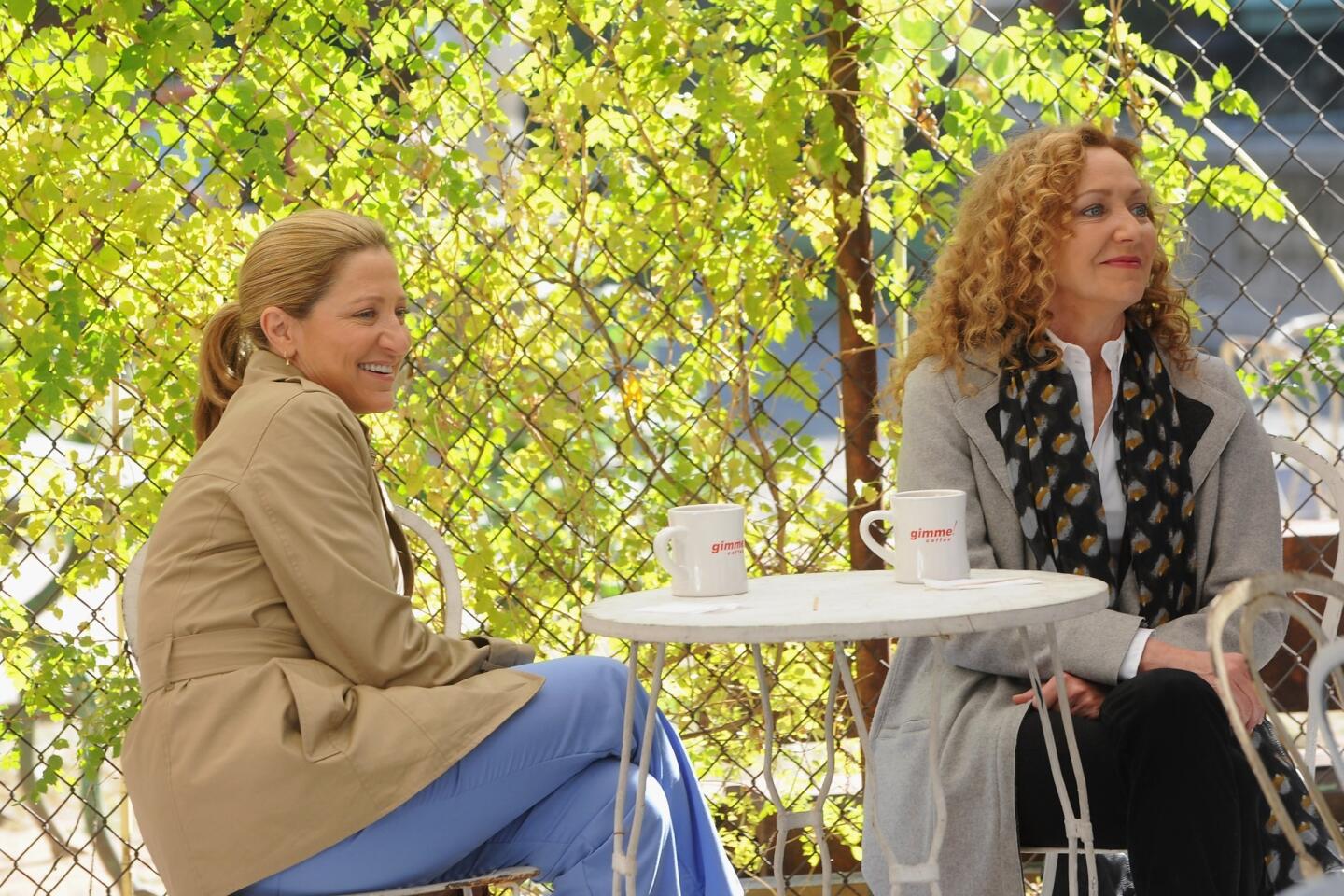Outfest L.A. signals societal shift in attitudes toward gays
- Share via
History took a giant step forward in June with the Supreme Court’s watershed rulings on marriage equality, and naturally it will take artists, even those notoriously quick-off-the-mark filmmakers, a bit of time to transform such momentous news into meditative reflection.
But at this year’s Outfest Los Angeles, the 31st annual LGBT Film Festival that concludes its 11-day run Sunday, there was one film that piercingly conveyed the imperative of this civil-rights breakthrough: Linda Bloodworth-Thomason’s “Bridegroom,” a documentary that puts front and center its concern for the “personhood and dignity” of gay and lesbian couples, to borrow the ringing language of Justice Anthony M. Kennedy’s federal Defense of Marriage Act decision.
Inspired by a YouTube video that went viral, the film examines the grief of Shane Bitney Crone, a young man mourning the loss of his lover, Tom Bridegroom, whose family barred Shane from his funeral. “Bridegroom” makes a public-service plea for recognition of the rights of same-sex couples, but at its heart the film, which will be shown again Sunday at the Directors Guild of America, is a love story.
PHOTOS: Celebrities by The Times
Shane and Tom grew up in small-town America but found freedom, acceptance and, most important of all, each other in Los Angeles. Tom’s fatal accident is addressed at the beginning, but “Bridegroom” spends a good deal of time in recounting the back story of these two gay lives — the intolerance Shane encountered at school in rural Montana, the pressure Tom was under to live up to the image his conservative religious parents had of him.
Their union is a lifeline for both of them, and when the tragedy occurs, it’s devastating. (The sobbing in the theater on Saturday afternoon was intense, and to the woman who turned around a couple of times at the sound of my gasps, please accept my apologies.) Tom didn’t live long enough to celebrate the Supreme Court’s decisions last month with Shane, but their love personalizes, with blunt emotional force, why marriage equality matters.
While paying tribute to their relationship, “Bridegroom” inventories the damage wrought by bullying, religious condemnation and close-minded conformity. When traveling on planes, Shane shares that he and Tom were discreet with their affection, holding hands under a blanket rather than subjecting themselves to the hostile disapproval they had been conditioned to expect.
CRITICS’ PICKS: The best movies in town
Shane and Tom’s bond is idealized, but love occasionally gets it right. (Not every couple is slated for an Edward Albee play.) There are heroes too, including Shane’s mother, whose support and understanding probably saved Shane from putting a bullet in his head when he sat with a gun and considered a quick escape from the ostracism of his adolescence. His family loved him unswervingly, and he confesses that he couldn’t inflict such torment on them. It’s a pitched battle, but love blindingly outshines hate in “Bridegroom.”
In general, the documentaries I encountered had more conviction than the fictional dramas. Particularly disappointing was “C.O.G.”, a feature film by Kyle Patrick Alvarez based on an essay in David Sedaris’ 1997 collection “Naked.” Shown at the opening-night gala, the movie revolves around a closeted Yale grad who decides to take a job picking apples in Oregon as a kind of Thoreau-esque solution to his identity crisis.
One of the problems with the movie — and it’s a shortcoming of a lot of gay fiction — is that it centers on a character (David, the protagonist of “C.O.G.”, is played by the agreeable Jonathan Groff) who is undeclared in his life, inhibited about his sexuality and in a holding pattern. In a prose narrative, Sedaris can keep a reader engaged through the knuckleball wit of his observations (the tone of which Alvarez hasn’t much success in translating onto the screen).
But drama requires action, conflict and resolution. “C.O.G.” episodically pursues David through a rural landscape in which he acquires a series of nutty mentors, including a war veteran turned zealous “child of God” (hence the film’s title), played by the estimable Denis O’Hare. Unfortunately, the movie travels in quirky circles that lead nowhere.
PHOTOS: Arts and culture by The Times
A similar aimlessness hampers “Pit Stop,” a film by Yen Tan that emerged from the Outfest screenwriting lab. Set in backwater Texas, the movie follows a daisy chain of ex-lovers who haven’t yet moved on from their past attachments and aren’t quite ready to commit to new possibilities.
Chekhov once observed that love is either a remnant “of something which once had been immense, or it is a particle of what will in the future develop into something immense, but at the present it is unsatisfying, it gives much less than one expects.” Tan’s film wants to occupy that nebulous space, but the screenplay, written with David Lowery, is a sequence of lyrical evasions that makes the romantic relationships seem as generic as the small town in which they take place.
With mainstream acceptance for the LGBT community growing by leaps and bounds, it’s understandable that so many of the films in this year’s Outfest are looking backward, surveying what could potentially get lost in the assimilationist shuffle.
Two raunchily nostalgic documentaries probe the gay underground in the days when sexual freedom rather than conjugal bliss was the goal — Malcolm Ingram’s “Continental,” about the New York City bathhouse and cabaret dreamed up by dicey entrepreneur Steve Ostrow and made famous by Bette Midler, and Jeffrey Schwarz’s “I Am Divine,” about filmmaker John Waters’ drag muse.
PHOTOS: Hollywood backlot moments
“Interior. Leather Bar.” adds a postmodern spin to the trend. This slight but fascinating Travis Mathews-James Franco “docufiction” experiment re-imagines cut footage from the controversial 1980 William Friedkin movie “Cruising.” (The hourlong film, which features a sensitive central performance by Val Lauren amid all the backroom antics, can be seen Saturday night at the Directors Guild of America.)
But let me call attention to two impressively daring dramatic features contending with present-day realities: Stacie Passon’s “Concussion,” about a well-heeled suburban woman (searchingly played by Robin Weigert) who’s drawn away from her picture-postcard haven of lesbian domesticity into a life of prostitution, and Michael Mayer’s highly absorbing “Out in the Dark,” about the relationship between a Palestinian student and an Israeli lawyer whose romantic fate hinges on forces much larger — and darker — than themselves.
Although both films have their strained moments, “Concussion” bravely confronts the flip side of the monogamous dream, while “Out In the Dark” kinetically explores geopolitical tensions from an obliquely revealing angle. As these movies show, cultural progress needn’t drain queer films of their radical difference. The margins, even when shifted toward the center, are still a font of provocative stories capable of illuminating both the wider world and the periphery.
More to Read
Only good movies
Get the Indie Focus newsletter, Mark Olsen's weekly guide to the world of cinema.
You may occasionally receive promotional content from the Los Angeles Times.
